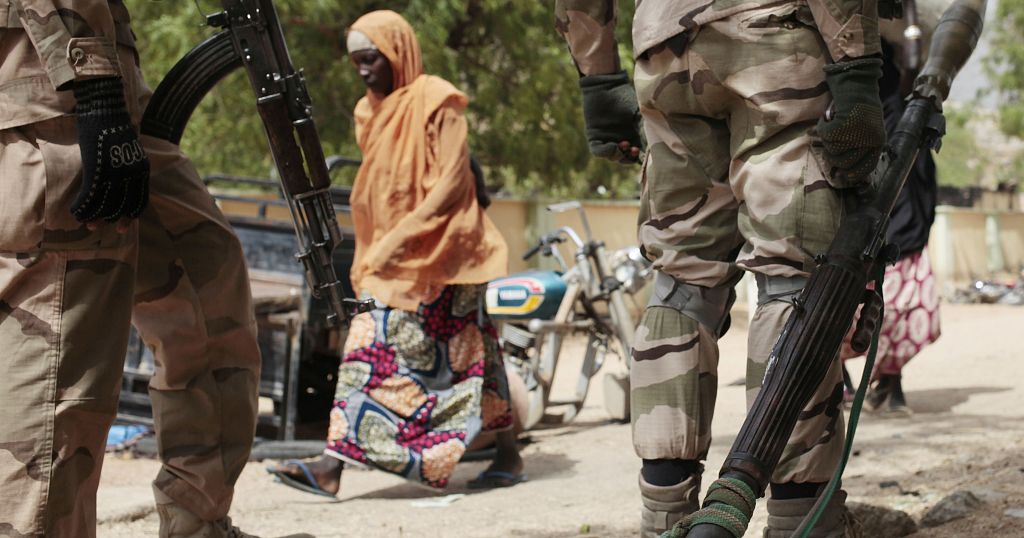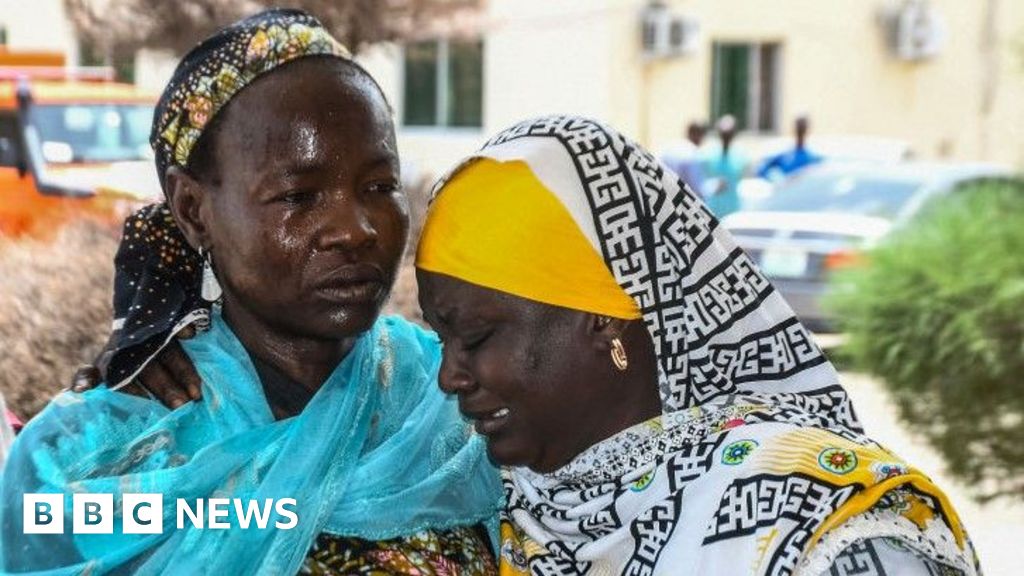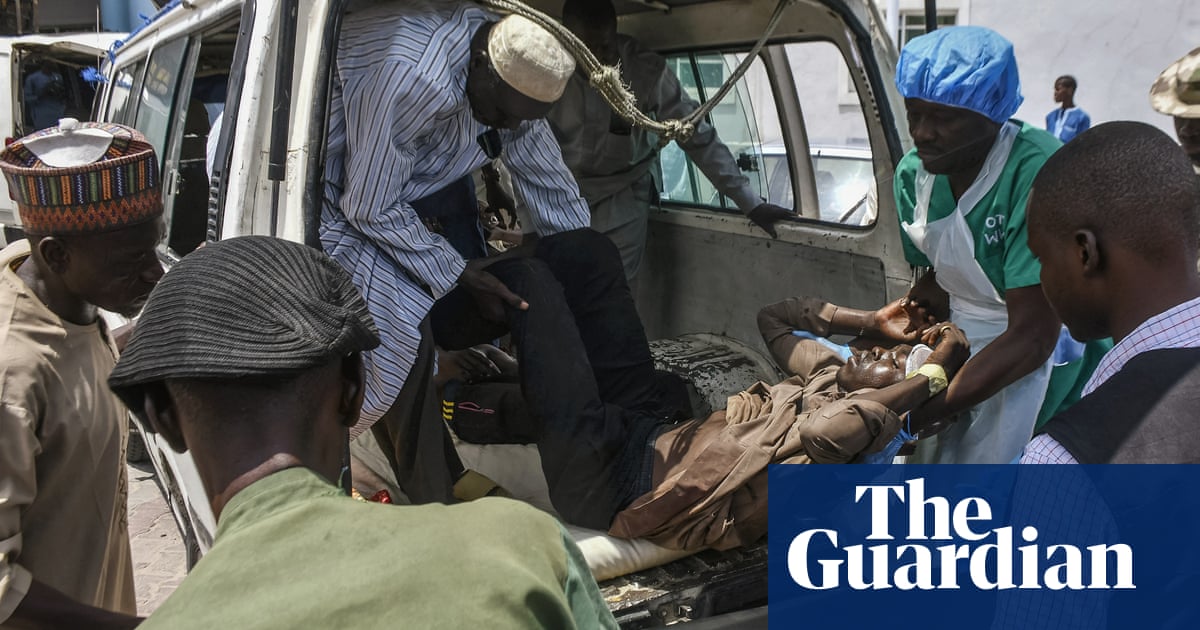A series of suicide bombings in Gwoza, a town in north-eastern Nigeria resulted in the death of at least 18 people and left 19 others seriously injured. The incidents happened in quick succession targeting a wedding, a hospital and a funeral.

Also Read: Maldives: 2 Ministers Arrested Over Alleged Black Magic on President
Wedding Attack
In Gwoza, Borno State, Nigeria. Approximately 3:45 PM local time. A female suicide bomber carrying a baby on her back detonated an improvised explosive device (IED) during a crowded wedding ceremony.
The explosion caused multiple casualties including children and pregnant women. Numerous deaths and injuries were reported, though exact numbers from this specific attack are unclear. The death toll from all three attacks was at least 18.
Hospital Attack
In General Hospital, Gwoza, Nigeria. Shortly after the wedding bombing, another female suicide bomber targeted a hospital. The explosion added to the increased the number of injured. Additional casualties were reported.
Funeral Attack
In Funeral service in Gwoza, Nigeria. The third attack occurred during a funeral service for the victims of the earlier wedding bombing. The attacker disguised as a mourner detonated another IED. The attack led to more deaths and injuries.
In a separate incident two militia members and a soldier were killed during an attack on a security post in Gwoza. The authorities have yet to confirm the details.
The Borno State Emergency Management Agency led by Director-General Barkindo Saidu reported that At least 18 deaths were recorded and 19 individuals with severe injuries were taken to the regional capital, Maiduguri.
The injured suffered from severe conditions such as abdominal ruptures and skull fractures. 23 other individuals were awaiting evacuation for medical treatment.
Boko Haram, a jihadist militant group active in the region has been responsible for numerous attacks over the past decade.
While the group has not claimed responsibility for these specific bombings and their history of using women and girls as suicide bombers raises suspicions of their involvement.
Gwoza has been a battleground in the conflict with Boko Haram. The town was seized by the group in 2014 and recaptured by the Nigerian military in 2015 with assistance from Chadian forces. The area remains volatile with more frequent attacks by militants hiding in nearby mountains.
Also Read: Julian Assange Returns to Australia After 12 Years of Legal Battles
The Boko Haram insurgency has led to the deaths of more than 40,000 people and the displacement of about 2 million in north-eastern Nigeria. The violence has also spilled over into neighboring countries including Niger, Cameroon and Chad.
Boko Haram has a history of kidnapping women and children using them as leverage or recruits in their insurgency.
The group is infamous for the abduction of 276 schoolgirls from Chibok in 2014 with nearly 100 girls still in captivity. The practice of kidnapping continues with at least 1,500 students taken in recent years.
Total reported deaths reached at least 18, including children, men, women and pregnant women. At least 30, with 19 in serious condition taken to the regional capital, Maiduguri.
Borno has been affected by a 15-year insurgency led by militant groups like Boko Haram and its splinter group, the Islamic State West Africa Province (ISWAP).
The conflict has resulted in over 40,000 deaths and displaced about two million people. Boko Haram and ISWAP are known for using female suicide bombers, a tactic first recorded in 2014.
These attacks are consistent with tactics used by Boko Haram, known for deploying women and young girls for suicide missions due to the ease of concealing explosives under their clothing.
The group has a history of violence including an event in 2014 where they kidnapped over 270 schoolgirls from Chibok, some of whom were reportedly forced into becoming suicide bombers.
President Bola Tinubu condemned the attacks describing them as “desperate acts of terror.” He reassured the public that the government would pursue justice and not allow such acts to instill fear.
The US Mission in Nigeria and Amnesty International Nigeria condemned the attacks.
Borno has experienced multiple suicide bombings and attacks in the past. Incidents includes a triple suicide attack in 2019 that resulted in 30 deaths.
Gwoza has a history of conflict having been captured by Boko Haram in 2014 and retaken by Nigerian forces in 2015.
Victims of the Gwoza attacks have been taken to hospitals in Maiduguri. Injuries range from severe abdominal ruptures to skull and limb fractures.
Also Read: Russia: At Least 15 killed in Synagogue, Church Attacks in Dagestan























